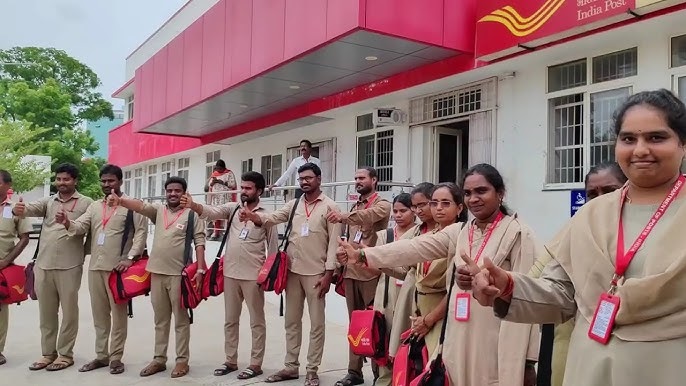MLA Salary in Telangana: The salary structure of Members of the Legislative Assembly (MLAs) in India varies from state to state. Telangana, a state known for its rapid development since its formation in 2014, has seen significant political and economic advancements. One aspect that often garners attention is the remuneration received by its public representatives, specifically the MLAs. This article provides an in-depth look at the MLA salary in Telangana, covering the components, allowances, and overall financial implications.
1. Introduction to MLA Salaries in India
MLAs play a crucial role in the legislative process, representing the interests of their constituencies and contributing to law-making. Their compensation package typically includes a basic salary, allowances, and various perks. The salary structure for MLAs differs significantly across states, influenced by economic factors, regional needs, and legislative decisions.
2. Basic Salary of MLAs in Telangana
The basic salary forms the core of an MLA’s income. As of the latest revision, MLA in Telangana receive a basic monthly salary of INR 2.50 lakh. This figure places Telangana among the states with higher MLA salaries in India, reflecting the state’s emphasis on rewarding its representatives for their contributions.
3. Allowances and Perks for Telangana MLAs
In addition to the basic salary, Telangana MLA are entitled to a variety of allowances and perks that enhance their overall income. These include:
- Constituency Allowance: MLA are allocated funds to manage expenses related to maintaining their connection with their constituency. This allowance helps them address local issues, hold meetings, and facilitate development projects.
- Travel Allowance: To cover the costs of official travel within and outside the state, MLA receive a generous travel allowance. This ensures that they can attend legislative sessions, visit their constituencies, and participate in state-related duties without incurring personal expenses.
- Daily Allowance: When attending legislative sessions or official functions, MLA receive a daily allowance to compensate for additional expenses incurred during these days.
- Medical Allowance: Telangana MLAs benefit from comprehensive medical coverage, allowing them and their families to receive high-quality medical care without financial strain.
- Accommodation and Housing: Many MLA receive housing facilities or allowances that enable them to live comfortably in Hyderabad, the state’s capital.
- Telephone and Internet Allowance: Communication is essential for MLAs to stay in touch with constituents and government bodies. Telangana MLA receive allowances for telephone and internet services to support their work.
4. Total Monthly Earnings of Telangana MLAs
Combining the basic salary and various allowances, the total monthly earnings of a Telangana MLA can exceed INR 4 lakh. This figure includes the following components:
- Basic Salary: INR 2.50 lakh
- Constituency Allowance: INR 50,000 – 1 lakh (varies by constituency needs)
- Daily Allowances: INR 1,000 – 2,000 per day (during legislative sessions)
- Travel and Medical Allowances: Based on actual expenses and legislative policies
5. Comparison with MLA Salaries in Other States
To understand the significance of the MLA salary in Telangana, it is helpful to compare it with other states. For instance:
- Maharashtra: MLAs in Maharashtra receive approximately INR 2.3 lakh as their total monthly earnings.
- Karnataka: The salary structure in Karnataka offers around INR 2.5 lakh per month, similar to Telangana’s basic salary.
- Uttar Pradesh: UP MLAs receive a monthly package of INR 1.87 lakh, which is comparatively lower.
- Delhi: The capital’s MLAs receive around INR 2.10 lakh, including various allowances.
6. Recent Salary Hikes and Controversies
Telangana’s government has revised MLA salaries several times since the state’s formation. The most notable revision occurred in 2018, when salaries were significantly increased to match the state’s growing economic status. This move, while welcomed by some, sparked debates about the justification for such high remunerations, especially in comparison to the average income of the state’s residents.
7. Impact on State Budget and Public Opinion
The financial implications of high MLA salaries extend beyond individual earnings and influence the state budget. Critics argue that allocating substantial funds to MLA salaries can strain public resources, which could otherwise be used for welfare programs and development projects. However, proponents believe that competitive salaries attract capable leaders and reduce the risk of corruption.
8. Other Benefits Enjoyed by MLAs
Beyond direct monetary compensation, Telangana MLAs enjoy numerous non-monetary benefits:
- Pension Schemes: Former MLAs receive a pension after completing their tenure, ensuring long-term financial stability.
- Official Vehicles: MLAs often have access to state-provided vehicles for official use.
- Staff and Office Maintenance: Funds are provided for employing personal staff and maintaining constituency offices.
- Subsidized Meals and Services: Legislative assembly canteens offer subsidized meals, and MLAs can avail services at lower costs.
9. Salary Revision Mechanisms
Salary revisions for MLAs in Telangana follow a structured process. Proposals for increases are typically introduced in the legislative assembly, discussed, and approved through a majority vote. Economic growth, inflation rates, and comparative salaries in other states are considered while determining these revisions.
10. Public Perception and Challenges
Public perception of MLA salaries often hinges on the effectiveness of their service. While a well-compensated representative is expected to perform diligently, any misuse of public funds or underperformance can lead to criticism. Transparency in financial dealings and a clear demonstration of efforts in public service play significant roles in shaping public opinion.
11. Conclusion: Balancing Fair Compensation and Public Interest
The salary of an MLA in Telangana reflects the state’s commitment to maintaining a well-functioning legislative system. While higher salaries can be seen as a means to attract talented individuals and reduce corruption, it is crucial that such compensation is balanced with accountability and public welfare initiatives. Ultimately, the aim should be to ensure that public representatives are adequately compensated while prioritizing the needs and development of the state and its people.















Leave a Reply